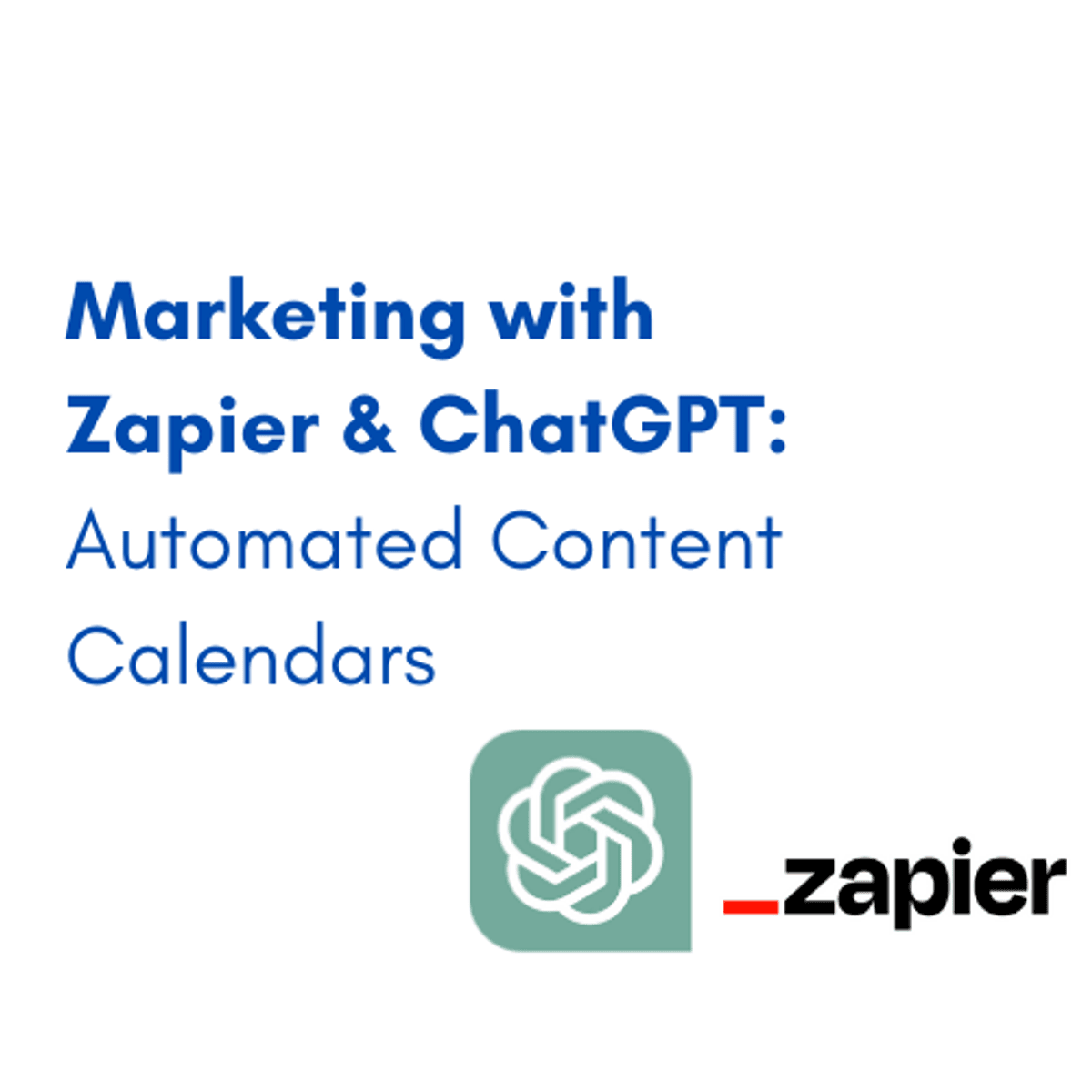Content Marketing
vigating the World of Content Marketing
Content marketing is a strategic approach to creating and sharing valuable, relevant, and consistent content to attract and retain a clearly defined audience — and, ultimately, to drive profitable customer action. It's about providing information that your audience is looking for, positioning your brand as a helpful resource and a thought leader in your industry. Instead of directly promoting a product or service, content marketing focuses on building relationships and trust with potential customers by offering them something of value. This can take many forms, including blog posts, articles, videos, podcasts, infographics, and social media updates.
The world of content marketing can be an exciting space for individuals who enjoy a blend of creativity and strategy. Imagine crafting compelling narratives that resonate with a specific audience, developing a voice for a brand that builds connection and loyalty, or seeing your work directly contribute to a company's growth by attracting and engaging customers. Content marketing allows for a dynamic career where you're constantly learning about new topics, experimenting with different formats, and analyzing results to refine your approach. It's a field that values both the art of storytelling and the science of understanding what makes people click, read, and ultimately, act.
For those new to the concept, think of content marketing as the opposite of a traditional advertisement that interrupts your experience. Instead, it aims to be the experience itself – the interesting article you choose to read, the helpful video you watch, or the informative podcast you subscribe to. It’s about drawing people in, not pushing a message out. This makes it a rewarding field for those who are passionate about communication and understanding audience needs.
Introduction to Content Marketing
This section will lay the groundwork for understanding content marketing, exploring its core principles and how it fits into the broader business landscape. We'll define what it means to create "valuable" and "relevant" content and how this approach differs from more traditional forms of marketing.
Definition and Core Objectives
At its core, content marketing is a strategic marketing approach focused on creating and distributing valuable, relevant, and consistent content. The primary goal isn't to directly sell products or services, but rather to attract and retain a clearly defined audience. Ultimately, the aim is to drive profitable customer action by building trust and establishing the brand as a credible and helpful resource.
The Content Marketing Institute offers a widely accepted definition: "Content marketing is a strategic marketing approach focused on creating and distributing valuable, relevant, and consistent content to attract and retain a clearly-defined audience – and, ultimately, to drive profitable customer action." This definition highlights several key components: it's strategic, meaning it requires planning and intention; it centers on valuable and relevant content, emphasizing the audience's needs; and its long-term objective is to foster customer loyalty and drive business growth.
Key objectives of content marketing include increasing brand awareness, building brand authority and credibility, educating potential customers, generating leads, improving customer engagement, and fostering customer loyalty. By consistently providing useful information, businesses can nurture relationships with their audience, guiding them through the buyer's journey from initial awareness to the decision-making stage.
Historical Evolution and Key Milestones
While the term "content marketing" has gained significant traction in the digital age, the underlying principles are not entirely new. Businesses have been using storytelling and valuable information to engage customers for centuries. Think of John Deere's "The Furrow" magazine, first published in 1895, which provided farmers with useful information rather than directly selling tractors. This is an early example of a brand providing value through content.
The rise of the internet and digital technologies dramatically transformed the landscape, making content creation and distribution more accessible and measurable. Early digital efforts often focused on website content and email newsletters. The advent of blogging in the late 1990s and early 2000s provided a new platform for businesses to share insights and connect with audiences.
The subsequent explosion of social media platforms in the mid-2000s further revolutionized content distribution, enabling brands to reach wider audiences and engage in two-way conversations. Search engines like Google also played a crucial role, as their algorithms began to prioritize high-quality, relevant content, making Search Engine Optimization (SEO) an integral part of content marketing. More recently, the focus has shifted towards data-driven content strategies, personalization, and the use of various rich media formats like video and interactive content. The ongoing evolution of technology, including artificial intelligence, continues to shape the practice of content marketing.
Distinction from Traditional Advertising
Content marketing and traditional advertising both aim to promote a business and its offerings, but they employ fundamentally different approaches. Traditional advertising is often described as "push" marketing; it interrupts the audience's experience to deliver a promotional message, such as TV commercials, radio ads, print advertisements, and billboards. The focus is typically on direct selling and broadcasting a message to a wide audience.
Content marketing, on the other hand, is a "pull" strategy. It focuses on creating and distributing valuable, relevant, and consistent content to attract and engage a target audience organically. Instead of directly pitching products or services, content marketing aims to provide value, build trust, and establish the brand as a thought leader. Consumers typically seek out this content when they are looking for information or solutions to their problems.
Another key difference lies in the longevity and format of the message. Traditional ads are often ephemeral and designed for immediate impact. Content marketing assets, such as blog posts, articles, and e-books, can have a much longer lifespan and continue to attract audiences over time. Furthermore, content marketing allows for more personalized and in-depth interactions, fostering a two-way conversation rather than a one-way broadcast. While traditional advertising often incurs significant media placement costs, content marketing can be more cost-effective in the long run, generating leads and building brand loyalty through sustained value.
Role in Modern Business Strategies
Content marketing plays a crucial and multifaceted role in modern business strategies. In an era where consumers are bombarded with information and often wary of overt advertising, content marketing offers a way to connect with audiences authentically and build meaningful relationships. It serves as the foundation for many other digital marketing efforts, including SEO, social media marketing, and email marketing.
One of its primary roles is to build brand awareness and establish authority. By creating high-quality, informative content, businesses can position themselves as experts in their field, gaining the trust and respect of their target audience. This is particularly important in B2B contexts and for complex products or services where education is a key part of the sales process.
Content marketing is also a powerful engine for lead generation. By offering valuable content like e-books, white papers, or webinars in exchange for contact information, businesses can attract potential customers and nurture them through the sales funnel. Furthermore, well-optimized content improves search engine rankings, driving organic traffic to a company's website. It also fuels social media engagement, providing shareable material that can expand a brand's reach. Ultimately, by focusing on customer needs and providing consistent value, content marketing contributes to customer acquisition, retention, and overall business growth.
These introductory courses can help build a foundational understanding of marketing principles, which are essential before diving deeper into content-specific strategies.
For those interested in the broader context of how marketing operates in the digital landscape, these topics provide further exploration.Key Concepts and Strategies in Content Marketing
This section delves into the practical and theoretical aspects of content marketing, providing insights for those looking to apply these strategies or understand their underlying mechanics. We will explore how to identify and understand your audience, frameworks for creating compelling content, the various channels for distributing that content, and how to measure the success of your efforts.
Audience Targeting and Segmentation
A cornerstone of successful content marketing is a deep understanding of the target audience. Before creating any content, it's crucial to define who you are trying to reach. This involves more than just basic demographics; it means understanding their needs, pain points, interests, challenges, and online behavior. Effective audience targeting ensures that your content resonates with the right people, making it more likely to be consumed, shared, and acted upon.
Audience segmentation is the process of dividing your broader target market into smaller, more defined groups based on shared characteristics. These segments could be based on demographics (age, gender, location, income), psychographics (lifestyle, values, interests), behavior (purchasing habits, online activity), or firmographics (for B2B marketing, like company size or industry). By segmenting your audience, you can tailor your content and messaging to be more relevant and persuasive for each specific group. This leads to higher engagement and more effective communication.Developing detailed buyer personas is a common technique used in audience targeting and segmentation. A buyer persona is a semi-fictional representation of your ideal customer based on market research and real data about your existing customers. Giving these personas names, backstories, and specific goals helps content creators to empathize with their audience and craft content that truly speaks to them.
Content Creation Frameworks (e.g., Storytelling, SEO Integration)
Effective content creation often relies on established frameworks and approaches. One powerful framework is storytelling. Humans are naturally drawn to stories, and brands can leverage this by weaving narratives into their content. Storytelling helps to create an emotional connection with the audience, making the message more memorable and relatable. This can involve sharing customer success stories, the brand's origin story, or narratives that illustrate the value and impact of its products or services.
Another critical framework involves SEO (Search Engine Optimization) integration. Creating great content is only half the battle; it also needs to be discoverable. SEO involves optimizing content so that it ranks higher in search engine results for relevant keywords and phrases. This includes conducting keyword research to understand what terms your audience is searching for, incorporating those keywords naturally into your content, optimizing titles and meta descriptions, and ensuring your website is technically sound for search engine crawlers. High-quality, SEO-friendly content is more likely to attract organic traffic and reach a wider audience.
Other content creation frameworks might focus on specific content types or goals, such as the "hero, hub, hygiene" model (also known as "hero, help, hub"). "Hygiene" or "help" content is always-on, foundational content that answers common customer questions. "Hub" content is regularly scheduled, engaging content for your target audience. "Hero" content refers to large-scale, campaign-based content designed for broad appeal and significant impact. Adopting such frameworks can bring structure and strategy to the content creation process.
These courses offer insights into creating content that not only tells a story but is also optimized for search engines, helping you to connect your content with business metrics.
For those looking to delve deeper into the art of storytelling and how it applies to branding, this book is a valuable resource. Exploring the broader topic of content strategy can provide a more holistic understanding of how content creation fits into an overall marketing plan.Distribution Channels (Social Media, Blogs, Email)
Creating excellent content is essential, but it's equally important to ensure that content reaches the intended audience. This is where content distribution channels come into play. These are the various platforms and methods used to share and promote your content. Broadly, distribution channels can be categorized into owned, earned, and paid media.
Owned media includes channels that your business directly controls, such as your company website, blog, email newsletters, and official social media profiles. These channels offer the most control over your messaging and branding. Your blog is a powerful platform for publishing in-depth articles, thought leadership pieces, and SEO-driven content. Email marketing allows for direct communication with subscribers, nurturing leads and sharing targeted content. Social media platforms like Facebook, X (formerly Twitter), LinkedIn, and Instagram are vital for sharing content, engaging with your audience, and building a community.
Earned media refers to organic exposure gained through word-of-mouth, shares, reviews, mentions, and press coverage. This is often the result of creating truly valuable and shareable content. When others voluntarily share your content on their social media, link to your blog posts, or feature your brand in their publications, it significantly boosts credibility and reach.
Paid media involves paying to promote your content to a wider or more targeted audience. This can include social media advertising, search engine marketing (SEM), sponsored content, and influencer marketing. Paid channels can provide immediate visibility and help you reach specific demographics or interest groups. A comprehensive content distribution strategy often involves a mix of all three types of channels to maximize reach and impact.
These courses can help you understand how to leverage various digital channels, including social media and blogs, for effective content distribution.
These books offer further insights into leveraging social media and creating impactful content for various platforms. Understanding these related topics can provide a broader perspective on how different channels work together.Metrics for Measuring Success (Engagement, Conversion Rates)
Measuring the success of content marketing efforts is crucial for understanding what works, what doesn't, and how to optimize future strategies. There are numerous metrics that can be tracked, and the most important ones will depend on the specific goals of your content marketing initiatives. These goals often fall into categories such as brand awareness, engagement, lead generation, and sales.
Engagement metrics gauge how your audience is interacting with your content. These can include likes, shares, comments, and mentions on social media; time spent on page and bounce rate for blog posts and website content; and open rates and click-through rates for email newsletters. High engagement often indicates that your content is resonating with your audience and providing value.
Conversion rates measure how effectively your content is driving desired actions. This could be a visitor signing up for a newsletter, downloading an e-book, registering for a webinar, requesting a demo, or making a purchase. Tracking conversion rates helps to understand the ROI of your content marketing efforts and its direct impact on business objectives.
Other important metrics include website traffic (overall traffic, traffic sources, organic traffic), search engine rankings for target keywords, lead quality, customer acquisition cost (CAC), and customer lifetime value (CLV). Tools like Google Analytics, social media analytics dashboards, and marketing automation platforms provide valuable data for tracking these metrics. Regularly analyzing this data allows content marketers to refine their strategies, improve content performance, and demonstrate the value of their work.
This book offers a comprehensive look at measuring the return on investment for social media efforts, a key component of many content marketing strategies.
Content Marketing in the Digital Age
The digital age has profoundly reshaped content marketing, introducing new technologies, challenges, and opportunities. This section explores the impact of automation and AI, the critical role of data analytics in tailoring content, the difficulties posed by information overload, and strategies for integrating content across multiple platforms.
Impact of AI and Automation Tools
Artificial intelligence (AI) and automation tools are increasingly influencing the landscape of content marketing. These technologies offer powerful capabilities to streamline workflows, enhance personalization, and uncover valuable insights. AI can assist in various stages of the content lifecycle, from topic generation and keyword research to content creation and performance analysis. For instance, AI-powered tools can analyze vast amounts of data to identify trending topics, suggest relevant keywords, and even help draft initial pieces of content.
Automation tools play a significant role in managing and distributing content more efficiently. Marketing automation platforms can schedule social media posts, send out email newsletters, and manage lead nurturing campaigns. This frees up content marketers to focus on more strategic tasks, such as developing creative concepts, building audience relationships, and analyzing campaign performance. The integration of AI in these automation tools further enhances their capabilities, allowing for more sophisticated A/B testing, dynamic content personalization, and predictive analytics.
However, while AI and automation offer significant benefits, they also present considerations. The human touch remains crucial for creating truly engaging, empathetic, and nuanced content. The ethical implications of AI-generated content, particularly concerning originality and authenticity, are also important areas of discussion. The most effective approach often involves leveraging AI and automation as powerful assistants that augment human creativity and strategic thinking, rather than replacing them entirely.
These courses explore how generative AI and other automation tools are being integrated into content marketing practices.
This book delves into the broader implications of content in the modern entrepreneurial landscape, which is increasingly shaped by technology.Role of Data Analytics in Personalization
Data analytics plays an indispensable role in enabling personalization within content marketing. In an era where consumers expect relevant and tailored experiences, leveraging data is key to delivering content that resonates on an individual level. By collecting and analyzing data on audience behavior, preferences, demographics, and past interactions, content marketers can gain deep insights into what their audience wants and needs.
This data can be used to segment audiences into more granular groups, allowing for the creation of highly targeted content. For example, analytics can reveal which topics are most popular with specific demographics, which content formats drive the most engagement, and at what stage of the buyer's journey different types of content are most effective. This information empowers marketers to personalize content recommendations, email campaigns, and website experiences.
Personalization goes beyond simply using a customer's name in an email. It involves delivering content that is contextually relevant to their interests and current needs. Data analytics can track a user's journey across various touchpoints, allowing marketers to serve up content that aligns with their recent activities or expressed interests. This not only improves engagement and conversion rates but also fosters a stronger sense of connection between the audience and the brand. However, the use of data for personalization must always be balanced with respect for user privacy and transparency about data collection practices.Challenges of Information Overload
One of the significant challenges content marketers face in the digital age is cutting through the sheer volume of information available online. Consumers are constantly bombarded with content from countless sources, leading to what is often termed "information overload" or "content shock." This makes it increasingly difficult for any single piece of content, no matter how well-crafted, to capture and retain audience attention.
To overcome this challenge, content marketers must focus on creating exceptionally high-quality, truly valuable, and differentiated content. Generic or superficial content is unlikely to stand out. Instead, the emphasis should be on providing unique insights, practical solutions, compelling storytelling, or entertaining experiences that genuinely benefit the audience. Understanding the specific needs and pain points of the target audience becomes even more critical in this environment, as it allows marketers to create content that is precisely relevant and therefore more likely to be noticed.
Effective distribution strategies are also crucial for combating information overload. Simply publishing content is not enough; it needs to be actively promoted through the right channels to reach the intended audience. Furthermore, building a strong brand reputation and cultivating a loyal audience can help ensure that your content is prioritized and trusted amidst the noise. Consistency in quality and value over time can help establish your brand as a go-to source, making your audience more receptive to your content.
Cross-Platform Integration Strategies
In today's multi-channel digital landscape, a cohesive cross-platform integration strategy is vital for effective content marketing. Audiences interact with brands across a variety of touchpoints, including websites, blogs, social media, email, mobile apps, and more. A cross-platform strategy ensures that the brand's message and user experience are consistent and complementary across all these channels.
This involves more than just repurposing the same content for different platforms. While repurposing can be efficient, an effective cross-platform strategy considers the unique strengths and audience expectations of each channel. For example, a long-form blog post might be adapted into a series of engaging social media updates, a visually appealing infographic, a short video, or key takeaways for an email newsletter. The core message remains consistent, but the format and delivery are tailored to the platform.
Integration also means creating seamless transitions for the audience as they move between platforms. For instance, a social media post might link to a blog article for more in-depth information, which in turn might encourage a newsletter signup for ongoing updates. The goal is to create a unified brand experience that guides the audience through their journey, regardless of which channel they are using. This requires careful planning, coordination between different marketing functions, and often, the use of marketing technology to manage and track cross-channel campaigns.
This course offers a practical approach to integrating various content and advertising efforts across social media and other channels.
Career Opportunities in Content Marketing
The field of content marketing offers a diverse range of career opportunities for individuals with strong communication, creativity, and analytical skills. As businesses increasingly recognize the importance of connecting with audiences through valuable content, the demand for skilled content marketing professionals continues to grow. This section will explore common job roles, industry demand, the choice between freelancing and in-house positions, and how opportunities can vary by geography and industry.
Common Job Roles (e.g., Content Strategist, SEO Specialist)
The content marketing field encompasses a variety of specialized roles. A Content Strategist is responsible for developing and overseeing the overall content marketing plan. This includes defining target audiences, setting content goals, determining key themes and messages, planning content calendars, and ensuring content aligns with business objectives. They often conduct research, analyze performance data, and manage content teams.
An SEO Specialist focuses on optimizing content to improve its visibility in search engine results. This involves keyword research, on-page optimization, technical SEO, link building, and analyzing search performance data to drive organic traffic.
A Content Writer or Copywriter is responsible for creating the actual content, whether it's blog posts, articles, website copy, email newsletters, social media updates, or video scripts. Strong writing, research, and storytelling skills are essential for this role.
A Social Media Manager focuses on creating and curating content specifically for social media platforms, managing social media accounts, engaging with the online community, and running social media campaigns.
Other roles can include Content Marketing Manager (overseeing the entire content marketing function and team), Content Editor (ensuring content quality, accuracy, and adherence to style guidelines), Videographer/Video Editor, Graphic Designer (creating visual content), and Email Marketing Specialist (managing email campaigns and subscriber lists). In smaller organizations, one person might wear multiple hats, while larger companies often have more specialized teams.
These courses provide insights into the strategic and specialized roles within content marketing, including SEO and broader digital marketing functions.
For those considering a career in this area, exploring these specific career paths can provide valuable direction.Industry Demand and Growth Projections
The demand for content marketing professionals has been steadily increasing and is projected to continue growing. Businesses across various sectors recognize the power of content to connect with audiences, build brand loyalty, and drive growth. According to Statista, the content marketing industry was projected to generate $107 billion annually by 2026, a significant increase from $63 billion in 2022, indicating robust expansion.
The U.S. Bureau of Labor Statistics (BLS) projects that overall employment in media and communication occupations is projected to grow about as fast as the average for all occupations from 2022 to 2032. More specifically, the BLS forecasts that the demand for market research analysts, a field closely related to understanding audience behavior for content marketing, will increase by 13% between 2022 and 2032. Similarly, advertising, promotions, and marketing manager roles are projected to see a job growth of 6 percent through 2032. The digital marketing industry as a whole is expected to grow significantly, with high demand for experts in social media marketing, SEO, and content creation.
This growth is fueled by several factors, including the continued shift towards digital channels, the increasing importance of online presence for businesses, and the evolving ways consumers seek information and make purchasing decisions. As more companies invest in digital transformation and seek to differentiate themselves through superior content experiences, the need for skilled content marketers is expected to remain strong.
Freelancing vs. In-House Opportunities
Content marketing professionals have the option to work as freelancers (independent contractors) or as in-house employees for a single company. Each path offers distinct advantages and disadvantages.
Freelancing in content marketing provides flexibility in terms of work schedule, location, and the types of projects and clients one chooses to work with. Freelancers often have the opportunity to specialize in a particular niche or type of content. However, freelancing also comes with the responsibilities of managing one's own business, including finding clients, negotiating contracts, invoicing, and handling taxes. Income can be less predictable, and benefits like health insurance and retirement plans are typically self-funded. In-house positions offer more stability, a consistent salary, and often include benefits packages. Working in-house allows for a deep understanding of a single brand's voice, goals, and culture, and facilitates close collaboration with other departments. There may also be clearer paths for career advancement within the organization. However, in-house roles might offer less variety in terms of projects and industries compared to freelancing. The choice between freelancing and an in-house role often depends on an individual's career goals, work style preferences, and tolerance for risk. Some professionals may also choose a hybrid approach, working in-house while taking on occasional freelance projects.Weighing the pros and cons of freelancing versus in-house roles is a critical step in career planning.
record:3
record:40
record:39
Geographic and Industry-Specific Variations
Career opportunities and compensation in content marketing can vary based on geographic location and the specific industry. Major metropolitan areas and tech hubs often have a higher concentration of content marketing jobs and potentially higher salaries, but also a higher cost of living. The rise of remote work has somewhat lessened the impact of geography, allowing professionals to work for companies located elsewhere, though some organizations still prefer local or hybrid arrangements, particularly in sectors valuing in-person collaboration.
The demand for content marketers also differs across industries. Technology companies, including SaaS, AI, and cloud services, are major employers of content marketers, as they need to explain complex products and build brand awareness in competitive markets. The healthcare industry, financial services, e-commerce, and retail also show strong demand for content professionals to educate consumers, build trust, and drive online sales.
Furthermore, the specific skills and knowledge required can vary by industry. For example, content marketers in the financial industry need an understanding of compliance and regulatory requirements, while those in healthcare may need to navigate privacy laws like HIPAA. Content marketers in highly technical fields might require a deeper subject matter expertise to create credible and accurate content. Researching specific industries and geographic markets can help individuals tailor their job search and skill development accordingly. Some reports indicate that industries like finance/fintech and e-commerce are expected to significantly increase their hiring of marketing professionals.
This information can help in understanding which sectors are actively seeking content marketing expertise.
record:35
record:29
record:46
Formal Education Pathways
While practical experience and a strong portfolio are highly valued in content marketing, formal education can provide a solid foundation and a competitive edge. This section explores relevant degree programs, graduate-level opportunities, and the role of practical experiences like internships in preparing for a career in this field.
Relevant Undergraduate Majors (e.g., Communications, Marketing)
Several undergraduate majors can equip students with the foundational knowledge and skills necessary for a career in content marketing. A Bachelor's degree in Marketing is a common and direct path, providing a broad understanding of marketing principles, consumer behavior, market research, and strategic planning.
A degree in Communications or Journalism is also highly relevant, as these programs emphasize strong writing, editing, storytelling, research, and interviewing skills – all of which are crucial for creating compelling content. Students learn how to craft clear and engaging messages for various audiences and platforms.
An English degree can develop exceptional writing, analytical, and critical thinking skills. The ability to understand literature, deconstruct texts, and articulate complex ideas can translate well into creating nuanced and persuasive content.
Other related fields include Public Relations, Advertising, Digital Media, and even Business Administration with a marketing concentration. The key is to choose a program that allows you to develop strong written and verbal communication skills, an understanding of audience psychology, analytical abilities, and a creative mindset. Many universities also offer specific courses or concentrations in digital marketing or content creation within these broader majors. According to Zippia, a significant majority (82.4%) of content marketing specialists in the US hold at least a bachelor's degree.
These courses can provide a taste of the foundational knowledge offered in marketing and communications programs.
Graduate Programs and Research Opportunities
For those seeking advanced knowledge or a career in academia or specialized research within content marketing, graduate programs offer further educational pathways. A Master's degree in Marketing, Digital Marketing, Communications, or Integrated Marketing Communications (IMC) can provide a deeper understanding of strategic marketing principles, advanced analytics, research methodologies, and emerging trends in the digital landscape.
Some universities offer specialized Master's programs or concentrations specifically in Content Marketing or Content Strategy. These programs often delve into advanced topics such as content analytics, ROI measurement, multi-channel content distribution, advanced SEO, and managing content teams. For example, TU Dublin offers a Master of Science in Digital and Content Marketing that aims to equip students with key skills for roles in this field, including content creation.
Research opportunities at the graduate level can involve exploring various facets of content marketing, such as its impact on consumer behavior, the effectiveness of different content formats, the role of AI in content creation, or ethical considerations in digital content. A Master's thesis or doctoral dissertation could focus on a specific area of content marketing, contributing new knowledge to the field. Such programs are beneficial for those aspiring to leadership roles, specialized consulting, or academic careers.
This graduate program exemplifies the type of advanced study available in the field.
record:26
Capstone Projects and Thesis Topics
Capstone projects and theses are significant components of many undergraduate and graduate programs, offering students the opportunity to apply their learning to a real-world problem or conduct in-depth research on a specific topic. In the context of content marketing, these projects can be invaluable for developing practical skills and showcasing expertise to potential employers.
Possible capstone project ideas could include developing a comprehensive content marketing strategy for a local business or non-profit organization. This might involve conducting audience research, performing a content audit, identifying key themes and messages, creating a content calendar, producing sample content pieces, and outlining a distribution and measurement plan. Another project could focus on creating a specific type of content campaign, such as a series of educational videos, an interactive e-book, or a social media campaign, and then analyzing its performance.
For thesis topics, students might explore areas such as: the impact of storytelling techniques on brand perception in a specific industry; the effectiveness of AI-generated content versus human-written content; the role of personalization in improving content marketing ROI; ethical challenges in influencer marketing; or a comparative analysis of content distribution strategies across different social media platforms. These projects not only deepen a student's understanding but also provide tangible work samples for their portfolio.
Integration with Internships/Practicums
Internships and practicums provide invaluable hands-on experience, allowing students to apply their academic knowledge in a professional setting and gain practical skills in content marketing. Many educational programs encourage or even require internships as part of their curriculum. These experiences offer a bridge between theoretical learning and the realities of the workplace.
During an internship, students might be involved in a variety of tasks, such as assisting with content creation (writing blog posts, drafting social media updates), conducting keyword research, helping to manage social media accounts, analyzing website or social media data, or contributing to content planning meetings. This exposure to real-world projects and workflows is crucial for skill development and understanding industry best practices.
Internships also offer networking opportunities, allowing students to connect with professionals in the field and potentially secure job offers upon graduation. A successful internship can provide strong references and compelling examples of work for a portfolio. Seeking out internships with companies or agencies that have strong content marketing practices can significantly enhance a student's career prospects in this competitive field.
Online Learning and Self-Directed Study
Beyond formal education, online learning and self-directed study offer flexible and accessible pathways to acquire and enhance content marketing skills. This is particularly beneficial for career changers, professionals looking to upskill, or individuals seeking to supplement their existing knowledge. This section explores how to build skills through independent projects, the value of certifications, balancing self-study with other commitments, and strategies for developing a compelling portfolio.
Skill-Building Through Independent Projects
One of the most effective ways to learn and demonstrate content marketing skills is by undertaking independent projects. These projects allow you to apply theoretical knowledge in a practical context, experiment with different tools and techniques, and build tangible work samples for your portfolio. You don't necessarily need a client or an employer to start; personal projects can be just as valuable for learning.
Consider starting your own blog or website focused on a topic you're passionate about. This provides a platform to practice writing, SEO, content promotion, and website analytics. You could also create a social media presence for a personal brand or a fictional business, experimenting with different types of content and engagement strategies. Other project ideas include developing a sample content strategy for a hypothetical company, creating a series of educational videos or a podcast, or designing an infographic.
The key is to treat these projects as real-world assignments. Set clear goals, define your target audience, research your topic thoroughly, create high-quality content, and then try to promote it and measure its performance. Document your process and results, as these can be powerful talking points in interviews and valuable additions to your portfolio. OpenCourser itself can be a great resource for finding courses that guide you through such projects; you can easily browse through thousands of courses to find ones that match your interests.
These courses are designed to help learners build practical skills through hands-on projects and real-world applications.
Certifications and Micro-Credentials
Certifications and micro-credentials have become increasingly popular ways to validate specific skills and knowledge in the content marketing field. Numerous organizations and online learning platforms offer certifications in areas such as general content marketing, SEO, social media marketing, email marketing, digital analytics, and specific marketing software (e.g., Google Ads, HubSpot).
These credentials can be particularly beneficial for individuals who are new to the field, looking to transition careers, or wanting to demonstrate proficiency in a particular specialization. Completing a certification program often involves taking a series of courses and passing an exam. This process can provide structured learning and ensure you have a solid understanding of key concepts and best practices. The American Marketing Association (AMA), in partnership with the Content Marketing Institute (CMI), offers a Professional Certified Marketer® (PCM®) Content Marketing exam, which is a notable credential in the industry.
While certifications alone may not guarantee a job, they can enhance a resume, demonstrate a commitment to professional development, and provide a competitive edge. When choosing a certification, consider its relevance to your career goals, the reputation of the issuing organization, and whether the curriculum covers practical, up-to-date skills. Many learners find that combining certifications with hands-on project experience is a powerful way to build credibility. For those looking to save on course enrollments, checking the deals page on OpenCourser can sometimes provide limited-time offers.
These courses, some of which may offer certificates, can help you acquire specialized knowledge in content marketing.
If you're curious about how to leverage these credentials, OpenCourser's Learner's Guide offers articles on how to earn an online course certificate and effectively add it to your professional profiles.Balancing Self-Study with Formal Education
For many aspiring and practicing content marketers, a combination of self-study and formal education offers a well-rounded approach to skill development. Formal education, whether an undergraduate degree or a specialized graduate program, provides a structured curriculum, foundational knowledge, and often, recognized credentials. It can offer a comprehensive understanding of marketing principles, communication theories, and research methodologies.
Self-study, including online courses, workshops, industry blogs, podcasts, and books, allows for flexibility, specialization, and staying current with the rapidly evolving digital landscape. It enables individuals to learn at their own pace, focus on specific skills or tools relevant to their career goals, and adapt to new trends as they emerge. Platforms like OpenCourser provide a vast library of online courses, making self-directed learning more accessible than ever.
The key is to find a balance that suits your individual learning style, career objectives, and available resources. For some, formal education might provide the initial framework, with self-study used to deepen expertise in specific areas or stay updated. For others, particularly career changers, self-study and certifications might be the primary path, potentially supplemented by targeted workshops or short courses. Regardless of the approach, continuous learning is essential in the dynamic field of content marketing.
These comprehensive courses can serve as excellent resources for self-directed study, covering a wide range of digital marketing topics.
These books are considered foundational texts in content marketing and are excellent for self-study.Portfolio Development Strategies
A strong portfolio is arguably one of the most important assets for any content marketing professional, regardless of their level of experience. It provides tangible proof of your skills, creativity, and ability to achieve results. Your portfolio should showcase a diverse range of your best work, tailored to the types of roles or clients you are targeting.
When developing your portfolio, include examples that demonstrate different skills, such as writing (blog posts, articles, website copy), content strategy (sample content plans, audience research summaries), SEO (case studies showing improved rankings or traffic), social media management (successful campaign examples), and any visual or multimedia content you've created. If you're new to the field, independent projects, work from internships, or even volunteer work can be included. For each piece, provide context: what was the objective, who was the target audience, what was your role, and what were the results (if measurable)?
Consider creating an online portfolio using a personal website or a dedicated portfolio platform. This makes it easy to share your work with potential employers or clients. Organize your portfolio logically, making it easy to navigate and highlighting your strongest pieces. Regularly update your portfolio with new work and achievements. Remember, your portfolio is a dynamic representation of your capabilities and should evolve as your skills and experience grow. OpenCourser offers features like "Save to list" which can help you organize courses you've taken or projects you're working on, and you can even manage and share these lists via your saved lists page.
Ethical Considerations in Content Marketing
As content marketing becomes increasingly sophisticated and data-driven, ethical considerations are paramount. Building trust with audiences requires transparency, respect for privacy, and a commitment to providing accurate and responsible information. This section addresses key ethical challenges in the field.
Transparency in Sponsored Content
Sponsored content, also known as native advertising, is content that is paid for by an advertiser but is designed to blend in with the style and format of the platform on which it appears. While sponsored content can be a legitimate way for brands to reach audiences and for publishers to generate revenue, transparency is crucial. Audiences have a right to know when the content they are consuming is promotional.
Ethical content marketing practice dictates that sponsored content should be clearly and conspicuously disclosed as such. This can be done through labels like "Sponsored," "Advertisement," "Paid Post," or similar clear demarcations. The goal is to avoid deceiving the audience into thinking that a paid promotion is an independent editorial piece. Regulatory bodies like the Federal Trade Commission (FTC) in the United States provide guidelines on native advertising and endorsements, emphasizing the need for clear disclosure to prevent misleading consumers. Failing to be transparent can damage audience trust and harm the reputation of both the advertiser and the publisher.
Data Privacy and User Consent
Content marketing often relies on collecting and analyzing user data to personalize experiences and target messaging. While data can enhance relevance, it also brings significant ethical responsibilities regarding data privacy and user consent. Consumers are increasingly concerned about how their personal information is being collected, used, and shared.
Ethical content marketers must prioritize data privacy by being transparent about their data collection practices. This includes having clear privacy policies that explain what data is collected, how it is used, and with whom it might be shared. Obtaining explicit user consent before collecting or using personal data, particularly for marketing communications or tracking online behavior, is essential. This is not only an ethical imperative but also a legal requirement in many jurisdictions, such as under the General Data Protection Regulation (GDPR) in Europe.
Respecting user preferences regarding data use, providing easy ways for users to opt-out of data collection or marketing communications, and ensuring data security are all critical components of ethical data handling in content marketing. Building trust requires demonstrating that you value and protect your audience's personal information.
Combating Misinformation
The spread of misinformation and disinformation is a significant societal challenge, and content marketers have a responsibility to ensure they are not contributing to this problem. Ethical content marketing involves a commitment to accuracy, truthfulness, and responsible sourcing of information. Content should be well-researched, and claims should be substantiated with credible evidence.
This means fact-checking information before publishing, clearly citing sources, and avoiding the creation or dissemination of content that is intentionally misleading, false, or manipulative. In an environment where trust is easily eroded, brands that consistently provide accurate and reliable information will build stronger relationships with their audiences. Content marketers should also be mindful of the potential for their content to be misinterpreted or taken out of context and strive for clarity and precision in their communication.
Furthermore, ethical practitioners should be wary of engaging in practices that could inadvertently amplify misinformation, such as using clickbait headlines that misrepresent the content or partnering with unreliable sources or influencers. Upholding journalistic principles of accuracy and fairness, even in a marketing context, is crucial for maintaining credibility and contributing to a more informed online environment.
Regulatory Frameworks (e.g., GDPR, FTC Guidelines)
Content marketers must operate within a complex web of legal and regulatory frameworks that govern advertising, data privacy, and consumer protection. Ignorance of these regulations is not an excuse and can lead to significant penalties and reputational damage. Key regulatory frameworks include the General Data Protection Regulation (GDPR) in the European Union, which sets strict rules for the collection and processing of personal data. The Federal Trade Commission (FTC) in the United States enforces laws against deceptive advertising and unfair business practices, including providing guidelines on endorsements, testimonials, and native advertising.
These regulations often require businesses to be transparent in their marketing communications, obtain proper consent for data collection and use, provide clear disclosures for sponsored content and affiliate relationships, and ensure the accuracy of their claims. Content marketers need to stay informed about the specific regulations that apply to their industry, geographic markets, and marketing activities.
Adherence to these regulatory frameworks is not just about avoiding legal trouble; it's also about building trust with consumers. When businesses demonstrate a commitment to ethical and lawful practices, they reinforce their credibility and show respect for their audience. Legal counsel should be consulted when there are questions about compliance with specific regulations.
The Future of Content Marketing
The field of content marketing is constantly evolving, shaped by technological advancements, shifts in consumer behavior, and emerging global trends. This section looks ahead at what the future might hold, exploring new technologies, changing audience expectations, and the growing importance of ethical and sustainable practices.
Emerging Technologies (e.g., AR/VR, Generative AI)
Emerging technologies are poised to further transform content marketing. Augmented Reality (AR) and Virtual Reality (VR) offer immersive experiences that can bring content to life in new ways. For example, AR can allow customers to visualize products in their own homes before purchasing, while VR can create engaging brand experiences or interactive storytelling. As these technologies become more accessible, they will likely open up new avenues for creative content creation and audience engagement.
Generative AI is already making a significant impact, with tools capable of assisting in content ideation, drafting, and even creating images and videos. As generative AI models become more sophisticated, their role in content marketing will likely expand, potentially automating more routine tasks and enabling hyper-personalization at scale. However, the ethical implications and the need for human oversight will remain critical considerations. The ability to effectively prompt and guide AI tools will become an increasingly valuable skill for content marketers.
Other technologies, such as the Internet of Things (IoT), voice search optimization, and advanced data analytics platforms, will also continue to shape how content is created, distributed, and consumed. Staying abreast of these technological developments and understanding their potential applications will be crucial for future success in content marketing.
These courses touch upon the cutting edge of technology in marketing, including AI.
Shifts in Consumer Behavior
Consumer behavior is not static; it evolves in response to technological changes, cultural shifts, economic conditions, and global events. Understanding these shifts is vital for content marketers to remain relevant and effective. For instance, there's a growing demand for authenticity and transparency from brands. Consumers are increasingly wary of overly polished or inauthentic marketing messages and are drawn to brands that communicate honestly and align with their values.
The way consumers discover and consume content is also changing. Short-form video content on platforms like TikTok and Instagram Reels has seen explosive growth, particularly among younger audiences. Mobile-first consumption continues to dominate, meaning content must be optimized for smaller screens and on-the-go viewing. There's also an increasing expectation for personalized experiences; consumers want content that is relevant to their specific interests and needs.
Furthermore, social commerce, or purchasing products directly through social media platforms, is on the rise, creating new opportunities for content to drive direct conversions. Consumers are also showing increased support for small businesses and brands that take a stand on social and environmental issues. Content marketers must stay attuned to these evolving behaviors and adapt their strategies accordingly, ensuring their content is authentic, engaging, and delivered through the channels their audience prefers.
Sustainability and Ethical Branding Trends
Sustainability and ethical branding are no longer niche concerns but are becoming mainstream expectations. Consumers, particularly younger generations, are increasingly conscious of the environmental and social impact of their purchasing decisions. They are looking for brands that align with their values and demonstrate a genuine commitment to ethical practices and sustainability.
This trend has significant implications for content marketing. Brands have an opportunity to communicate their sustainability initiatives, ethical sourcing practices, and social responsibility efforts through their content. This can involve sharing stories about their impact, providing educational content on relevant issues, or highlighting sustainable product features. However, authenticity is paramount. "Greenwashing," or making misleading claims about environmental or ethical practices, can severely damage a brand's reputation.
Content marketing can play a crucial role in building trust by transparently communicating a brand's values and actions. This might include content that details supply chain transparency, efforts to reduce carbon footprint, support for fair labor practices, or community engagement initiatives. Brands that can authentically and effectively communicate their commitment to sustainability and ethics through their content are likely to build stronger connections with conscious consumers and differentiate themselves in the marketplace.
Global Market Expansion Challenges
As businesses increasingly look to expand into global markets, content marketing faces unique challenges and opportunities. Reaching diverse international audiences requires more than just translating existing content. It demands a deep understanding of cultural nuances, local customs, language variations, and consumer behavior in each target market.
Content that resonates in one culture may not be effective or could even be misconstrued in another. Therefore, a global content marketing strategy requires careful localization and transcreation. Localization involves adapting content to suit the specific linguistic and cultural preferences of a target market. Transcreation goes a step further, essentially re-creating the content to ensure it evokes the same emotions and achieves the same objectives in the new cultural context, even if the literal wording or imagery changes.
Other challenges include navigating different regulatory environments, understanding local media consumption habits, and choosing appropriate distribution channels for each market. SEO strategies also need to be adapted for different search engines and languages. Building local teams or partnering with local experts can be invaluable for navigating these complexities and creating content that truly connects with global audiences. Despite the challenges, successful global content marketing can unlock significant growth opportunities and build a strong international brand presence.
This book provides specific insights into creating content for a worldwide audience.
Frequently Asked Questions (Career Focus)
This section addresses common questions that individuals, especially those considering a career change or just starting, might have about working in content marketing. The aim is to provide practical and realistic insights.
Is a degree required to enter this field?
While a bachelor's degree is often preferred by employers, it's not always a strict requirement to enter the content marketing field, especially for certain roles or in a freelance capacity. Many successful content marketers have built their careers through a combination of self-study, online courses, certifications, and practical experience. A strong portfolio showcasing your skills and ability to create effective content can often be more influential than a specific degree.
However, a degree in a relevant field such as marketing, communications, journalism, or English can provide a strong foundation and may be an advantage, particularly for entry-level positions in larger organizations or for roles that require a broader understanding of marketing principles. According to one source, 82.4% of content marketing specialists in the US have at least a bachelor's degree.
Ultimately, what matters most is a demonstrable ability to create valuable, engaging content that achieves business objectives. If you can prove your skills through a compelling portfolio and articulate your understanding of content marketing principles, you can find opportunities regardless of your formal educational background. For those without a degree, investing in reputable online courses and certifications can be a valuable way to build knowledge and credibility.
How transferable are content marketing skills to other roles?
Content marketing skills are highly transferable to a wide range of other roles, both within and outside of the marketing Seld. The core competencies developed in content marketing, such as strong writing and communication, research, analytical thinking, creativity, project management, and an understanding of audience behavior, are valuable in many professions.
Within marketing, skills like SEO, social media management, email marketing, and data analysis can lead to specialized roles in those areas. A content strategist might move into a broader digital marketing management role or a brand management position. The storytelling and messaging skills are also valuable in public relations, corporate communications, and sales enablement.
Outside of traditional marketing, content creation skills are sought after in fields like technical writing, instructional design, UX writing (creating copy for user interfaces), and even journalism or publishing. The ability to research complex topics and explain them clearly is a valuable asset in almost any industry. Therefore, a career in content marketing can provide a solid foundation for diverse career paths and opportunities for growth.
What entry-level roles are most common?
For individuals starting in content marketing, several entry-level roles are common. One of the most frequent is Content Marketing Specialist or Content Creator/Writer. In these roles, responsibilities typically include writing blog posts, articles, social media updates, and website copy, as well as assisting with content research and planning.
Another common entry point is a Social Media Coordinator or Specialist. This role focuses on creating and managing content for social media platforms, engaging with online communities, and tracking social media performance.
Marketing Assistant or Marketing Coordinator positions in smaller companies or marketing departments can also be a good starting point, often involving a variety of tasks that include content creation and support for broader marketing campaigns. Some individuals may also start as SEO Assistants or Junior SEO Specialists, focusing on keyword research and content optimization. Internships in content marketing or digital marketing also provide valuable entry-level experience. These roles typically emphasize developing foundational skills in content creation, distribution, and basic analytics.These resources provide more detail on common entry points into the field.
record:7
record:18
record:36
record:30
How does freelancing compare to full-time employment?
Freelancing and full-time employment in content marketing offer different lifestyles and career experiences. Freelancing provides autonomy, flexibility in choosing projects and clients, and the ability to set your own hours and work location. Freelancers are essentially small business owners, responsible for marketing themselves, managing finances, and securing their own benefits. Income can be variable, depending on the ability to consistently find work.
Full-time employment typically offers more stability, a regular salary, benefits (like health insurance and paid time off), and often, a clearer path for career progression within a company. In-house roles allow for deeper immersion in a single brand's strategy and culture, and closer collaboration with a team. However, there might be less variety in day-to-day work compared to freelancing.The choice often comes down to personal preferences. Some thrive on the independence and variety of freelancing, while others prefer the security and structure of a full-time role. It's also possible to transition between the two or combine them, for example, by working full-time while taking on occasional freelance projects. Both paths can lead to a successful and fulfilling career in content marketing. You can find more information on job boards like LinkedIn or Indeed.
What industries hire content marketers most frequently?
Content marketers are in demand across a wide array of industries, as nearly every type of business can benefit from a strong online presence and engaging content. However, some sectors tend to hire content marketers more frequently or have a more pronounced need for their skills.
The technology industry is a major employer, including software companies (SaaS), hardware manufacturers, AI developers, and cloud service providers. These companies often need to explain complex products and services in an accessible way and differentiate themselves in rapidly evolving markets.
E-commerce and retail businesses heavily rely on content marketing to attract customers, showcase products, improve SEO, and drive online sales. This includes creating product descriptions, blog posts about trends, how-to guides, and engaging social media content. Healthcare and financial services also hire content marketers to build trust, educate consumers about complex topics (like health conditions or investment options), and navigate regulatory requirements for communication.Other industries with significant demand include marketing and advertising agencies (who serve various clients), media and publishing, education (especially with the growth of online learning), travel and tourism, and non-profit organizations. Essentially, any industry that needs to communicate effectively with an online audience is likely to value content marketing professionals.
How important is technical vs. creative expertise?
Both technical and creative expertise are important in content marketing, and the ideal balance often depends on the specific role and the nature of the work. Creative expertise is fundamental. This includes strong writing and storytelling skills, the ability to develop engaging concepts, an eye for design (or the ability to collaborate with designers), and an understanding of what resonates with an audience. Creativity is what makes content compelling, memorable, and shareable.
Technical expertise is also increasingly crucial. This encompasses skills like SEO (understanding keyword research, on-page optimization, technical SEO), data analytics (interpreting website traffic, engagement metrics, conversion data), familiarity with content management systems (CMS) like WordPress, marketing automation tools, and social media analytics platforms. These technical skills enable marketers to ensure their content is discoverable, to measure its impact, and to optimize strategies for better results.In many roles, particularly for content strategists or managers, a blend of both creative and technical skills is highly desirable. For example, a content strategist needs the creativity to develop compelling content ideas and the technical understanding to ensure those ideas are aligned with SEO best practices and measurable goals. While some roles might lean more heavily in one direction (e.g., a pure copywriter might focus more on creativity, while an SEO analyst focuses on technical aspects), a foundational understanding of both sides is beneficial for anyone looking to build a successful career in content marketing.
These courses highlight the blend of creative and technical skills needed in the field.
These books offer practical advice on both the creative and strategic aspects of crafting content that sells.Content marketing is a dynamic and evolving field that offers diverse opportunities for creative and strategic thinkers. Whether you are just starting to explore this career path or looking to deepen your existing knowledge, the journey of learning and adapting is continuous. The ability to create valuable content that connects with audiences and drives meaningful action is a skill set that will remain in high demand. As you navigate your path, remember that building a strong portfolio, continuously honing your skills through practice and learning, and staying adaptable to new technologies and trends will be key to your success. OpenCourser offers a wealth of resources, from blog articles on OpenCourser Notes to in-depth Learner's Guides, to support you on your learning journey.





























